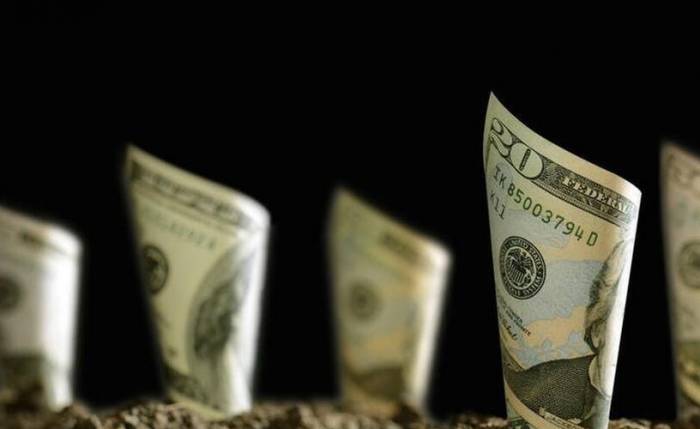The latest settlement agreement disclosed by the U.S. Securities and Exchange Commission (SEC) reveals that Carl Icahn, the "Wolf of Wall Street" who was targeted by short-seller Hindenburg last year, indeed had a substantial amount of undisclosed margin loans.
On Monday, August 19, Eastern Time, the SEC announced that in response to allegations that Icahn failed to disclose information about obtaining personal margin loans using shares of his investment company, Icahn Enterprises (IEP), as collateral, Icahn and IEP reached a settlement with the SEC. They agreed to pay a $2 million settlement fee, which includes $500,000 from Icahn himself and $1.5 million from IEP. These collaterals helped Icahn secure margin loan agreements worth billions of dollars with multiple lenders.
According to the settlement agreement disclosed by the SEC on Monday, since at least December 31, 2018, to the present, Icahn, as the controlling shareholder and chairman of the board of IEP, has pledged approximately 51% to 82% of IEP's floating shares to obtain margin loans worth billions of dollars, without disclosing this fact to shareholders or U.S. federal regulatory authorities. During the period from 2018 to 2022, 65% of IEP's shares were pledged, and in exchange, Icahn received personal margin loans of up to $5.1 billion from various lenders.
Advertisement
The settlement agreement states that both Icahn and IEP cooperated with the SEC's investigation by providing relevant information and documents. Neither Icahn nor IEP admitted or denied the SEC's findings, but agreed to cease any new violations.
On the day the SEC announced the settlement, IEP's stock closed down 4.7% on Monday, falling back to a low not seen since August 9 after rebounding to a closing high since August 2 on Friday, and fell more than 1% in after-hours trading.
Wall Street Journal had mentioned that last year was tough for Icahn, who was targeted by short-seller Hindenburg, investigated by judicial authorities, and revealed to have suffered massive losses from short-selling. The SEC's investigation announced on Monday began with Hindenburg's short-selling report.
On May 3 last year, Hindenburg released a report accusing IEP of inflating asset valuations, with an overvalued asset valuation, excessive leverage, and cash flow and investment performance that did not support the existing high dividend yield. The trading price of IEP's listed stocks was more than 200% premium to the net asset value (NAV), unusually high, while the trading prices of other closed-end holding companies, including funds managed by two hedge fund titans, Dan Loeb and Bill Ackman, were at a discount relative to NAV.
After the release of Hindenburg's report, IEP's stock price fell by more than 40% in four days. By late May, media estimates indicated that Icahn's personal wealth had shrunk by $15 billion since being targeted by Hindenburg.
A week after the release of Hindenburg's report, on May 10, IEP disclosed in a filing with the SEC that prosecutors from the U.S. Department of Justice's Southern District of New York contacted IEP on May 3, requesting the company and certain subsidiaries to provide information on corporate management, capitalization, securities issuance, dividends, valuation, marketing materials, due diligence, and other related documents.
About a week later, on May 18, Icahn admitted in a media interview that due to his incorrect bet on a market crash, IEP had lost nearly $9 billion over the past six years. The media analysis suggested that Icahn lost about $1.8 billion in 2017 due to hedging positions, which could have been profitable if asset prices had plummeted. From 2018 to the first quarter of last year, Icahn lost another $7 billion. At the time, Icahn said he thought the market would be in big trouble after the outbreak of the COVID-19 pandemic, but the Federal Reserve injected trillions of dollars to save the market, as the old saying goes, his lesson was "never bet against the Fed."Due to Icahn's short selling causing IEP to lose billions of dollars in funds, he invested nearly $4 billion of his own money into the company to maintain the stability of the investment portfolio value. The media reported that Icahn secured a margin loan, first disclosed at the beginning of 2022, to raise funds. Icahn obtained a margin loan from Morgan Stanley, using 60% of his IEP shares as low-pressure collateral. The Hindenburg report stated that Icahn used 65% of his IEP equity as collateral for the margin loan, without specifying the exact use of the loan. If IEP's stock price plummets, leading to a margin call and forcing Icahn to liquidate his shares, IEP's operations could collapse.

Following the release of the aforementioned interview, in late May of last year, Bill Ackman, the hedge fund magnate who was dubbed "Pandemic Warrior" for making a staggering $2.6 billion in profits within three weeks during the 2020 pandemic, commented that Hindenburg's report exposed the "underwear" of operating IEP. Icahn used margin loans to offset his shares in IEP, which somewhat reminded him of the hedge fund Archegos, which suffered losses of tens of billions of dollars in 2021.
In July last year, IEP disclosed in a filing with the SEC that Icahn had reached an agreement with five banks, including Bank of America and Morgan Stanley, to restructure $3.7 billion in all personal loans. The new agreement decoupled Icahn's loans from IEP's stock price, and margin call notices would no longer be tied to the stock price. The settlement agreement published by the SEC this Monday showed that it was not until July last year that Icahn described his personal agreements and the pledge of IEP securities in the amended filing with the SEC.

Post a comment